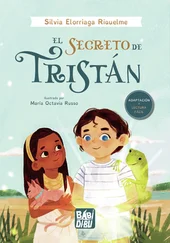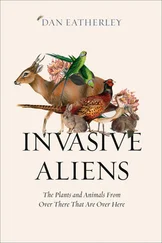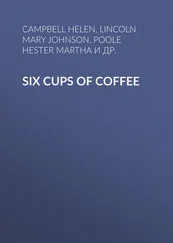Mateo nodded and the pearls of sweat on his forehead went up and down as he gestured with his head, up and down. He wanted to escape but at the same time he wanted to hear about his aitite . Especially about the competition. Aitite Julian’s story was becoming more and more interesting. His aitite was the best carpenter in Europe? Incredible.
“He was an artist, Julian was. With wood. But he did surprising things too. Like the thing he did with that woman, Doña Beatriz. Do you know who Doña Beatriz was? Beatriz Van Dieme was her name. She lived over there in Sarri, of course; in the first big house there in Sarri. They still live there. The son does, Leon Van Dieme. And the grandchild. The grandchild’s name is Gonzalo or Eduardo. Their house is bigger than a velodrome and only two people live there: Leon and his son. The son’s name is Eduardo or maybe Alexander. . Doña Beatriz’s father was an engineer, and that’s why they came here; they came from Holland. And they stayed. There, in Sarri, in that very house. And they had money to burn, they had. And people here in town feared Doña Beatriz. They were afraid because of their money; you know what it’s like, people are always afraid of money. But they were also afraid because she went to church a lot and was on very good terms with the priests, and because the Van Diemes had their own chapel in the house, for them only, and because they said she was a friend of the bishop. And do you know what your aitite Julian did to Doña Beatriz? Do you?”
Mateo said no, he didn’t, but he didn’t move his head much because he had realized a while ago the photography book sunk lower into his clothes with every little movement.
“Doña Beatriz ordered an armoire from your aitite . A big armoire, with three doors. You know what the houses in Sarri are like. Have you ever been in one of those houses, son? You haven’t? They’re amazing. They’re so spacious there’s space for everything. That’s why they ordered big armoires. And big chairs. And big beds. Mostly they ordered beds. And the chairs they ordered were big enough for three children. And Doña Beatriz ordered an enormous armoire from your aitite . Doña Beatriz was Leon Van Dieme’s mother. You know who Leon Van Dieme is, don’t you? The man who lives in the first big house as you drive into Sarri, that’s him. Well then, his mother, Doña Beatriz, ordered a three-door armoire from your aitite , with a glass display cabinet in the middle. And she ordered another four or five things on top of that, but the armoire was the most important thing in the order. Doña Beatriz wanted a special armoire. She told your aitite Julian she wanted the Rosary engraved on the armoire, on the three doors. You know what the Rosary is, don’t you, señe ? You know the Rosary has fifteen Mysteries, don’t you? Maybe you don’t know that; you’re too young to know about those things. So the Rosary has fifteen Mysteries, as you know: the birth and death of Jesus, the descent of the Holy Spirit. . you know the rest. . Well, there are fifteen Mysteries and they’re divided in three: five, five and five. And that’s what Doña Beatriz wanted: five Mysteries on one door, another five on another door and the last five on the last door. Doña Beatriz wanted the biggest Rosary in the world for her living room. And do you know what your aitite did to her? He engraved five Mysteries on the first two doors, five and five, he did, right enough, but not on the third door. On the third door he engraved six Mysteries. He invented one Mystery. And put it there. Right there on the third door of Doña Beatriz’s armoire. That’s what Julian was like. Do you realize, señe ? It was a prank. The whole armoire was a prank. A prank on Doña Beatriz, no less. And if she realized there was one extra Mystery, Julian would have to make the whole armoire all over again. And do you know how many days it took your aitite to make an armoire like that, with three doors and a display cabinet in the middle? Days and months. But he said it was worth it. He said even if it took him two months it was worth it. He used to say: Do you have any idea how much I enjoyed making up that Mystery? He said: do you know how much I laughed making that armoire? Go figure, señe . That’s what your aitite used to say, Julian. But the worst of it wasn’t the waste of time; the worst was the danger of being reported. Everybody thought Doña Beatriz would report him, because she knew the bishop and all that. Because everybody feared Doña Beatriz. But not your aitite , he played a prank on her. That’s what Julian was like, an artist. You didn’t get to meet him, did you son? That’s a pity. On Mondays dinner is at eight. In the summer too. It’s mackerel tonight. Well then, señe : tell your mother Martina you’ve spoken to me. Tell your Uncle Simon as well. He knows me well. See you tomorrow, Maria.”
“See you tomorrow, Juan,” said the librarian.
Mateo breathed again when the man left the library. He too said goodbye to the librarian and walked toward the door as elegantly as he could. Luckily the photography book didn’t move much more inside his clothes. Three minutes later, when he reached the street, he finally took the book from under his sweater. It was quite warm outside and there were two clouds in the sky. Seen from the earth it looked like one was thirty centimeters wide and the other forty-five.
Mateo was still thinking about Aitite Julian. About what the old man had said about him. All the while Mateo had been dying to get out of the library, but right now he realized he would be quite happy to learn more about his aitite . Moreover, he realized he knew practically nothing about him. He knew he had been a carpenter, yes. He knew that. But he had never heard about what he did to that woman from Sarri, about the armoire. Besides, the old man hadn’t told him whether Doña Beatriz had noticed the extra Mystery on the door. The old man never said what happened with the armoire. He would ask Mom, or Aunt Rosa. They would know.
The story about the armoire was intriguing. Mateo was intrigued by the fact that his aitite was a bit of an anarchist. That was the reason his mother was the way she was. And the same went for Aunt Rosa. And his sister Iñes. And himself too. Mateo himself was a child of that armoire. Of the third door of that armoire.
But there was something even more intriguing about what the old man had said: the competition. What competition did Aitite Julian take part in? The best carpenter in Europe. That’s what the old man said. But what happened? Did Aitite Julian win? He had never heard about that at home either. He had heard he was a good carpenter, highly thought of, yes; his work was sought-after by the people from Sarri and Eldas, and in the provinces too. But the best in Europe? Was that true? How many carpenters were there in Europe back then? Three million? How many carpenters were there in Switzerland alone? And this was in 1927. Eccentrics in 1927, what were they like? What did the carpentry competition involve? He was going to have to ask someone about this too.
It was summer, it was warm, but despite that, Mateo thought of university. He remembered how many biographies they had had to read in university. They had to read the biographies of philosophers and kings and queens. There were two clouds in the sky, they were small, and Mateo realized that Immanuel Kant, for example, had a much less interesting biography than Aitite Julian. And it seemed to him that it was a bit obscene that he had read the biographies of so many others while he knew nothing about his grandfather. And the evening was very warm, it was summer, and every fifteen seconds or so Mateo felt a gust of wind.
Читать дальше












